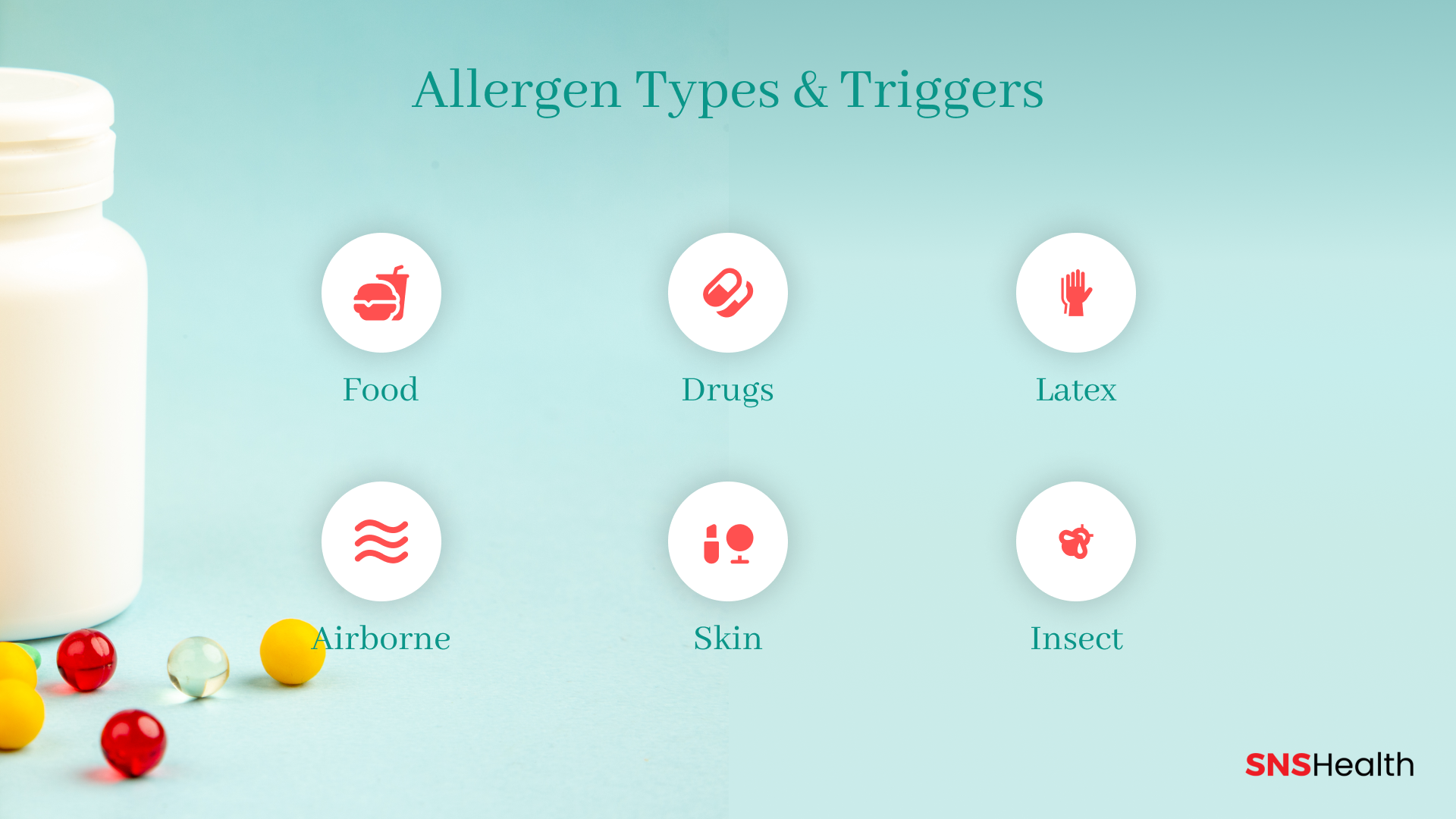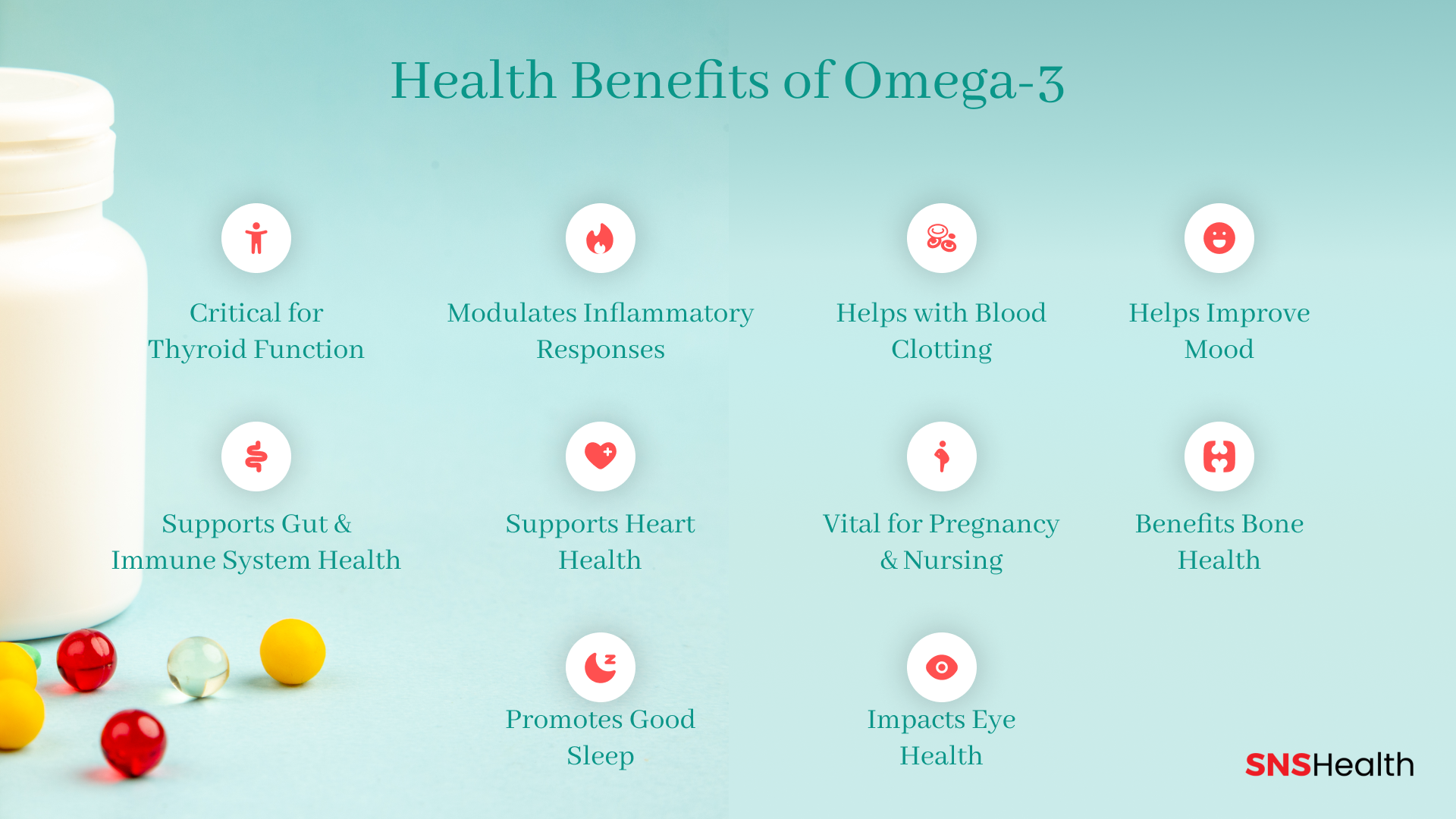Allergies can be a persistent and frustrating condition that affects a significant number of individuals worldwide. Incorporating certain supplements into your routine may provide valuable support if you're seeking effective ways to strengthen your immune system and alleviate allergy symptoms. In this article, we will explore the benefits of three essential supplements: Vitamin C, Collagen, and Omega-3. By understanding how these allergy fighters work and their potential impact on your health, you can make informed decisions to better manage your allergies and enhance your well-being.
Understanding Allergies
What Are Allergies?
Allergies are the result of your immune system's hypersensitivity to substances that are typically harmless. Common allergens include pollen, dust mites, pet dander, and certain foods. When exposed to these allergens, your immune system releases histamines, triggering symptoms such as sneezing, itching, and congestion.
Common Allergy Triggers

A wide range of factors can trigger allergies. Common environmental allergens include pollen, dust mites, mold spores, and pet dander. Certain foods, insect bites, and medications can also act as triggers. Identifying your specific allergy triggers is crucial for effective management and symptom reduction.
The Role of Vitamin C
Vitamin C is an extraordinary nutrient renowned for its immune-boosting properties. Regarding allergies, Vitamin C acts as a natural antihistamine, reducing the release of histamines that trigger allergic reactions.
How Vitamin C Supports Immunity
Vitamin C strengthens the immune system by promoting the production of white blood cells responsible for fighting off infections and allergens. It also acts as an antihistamine, reducing the release of histamines that contribute to allergy symptoms.
Food Sources of Vitamin C
Including vitamin C-rich foods in your diet is essential for reaping its benefits. Citrus fruits, berries, kiwi, broccoli, and bell peppers are excellent sources of this essential nutrient. However, obtaining adequate amounts of vitamin C from food can be challenging, which is where supplements can be advantageous.
Benefits of Vitamin C Supplements
Supplementing with vitamin C can ensure you receive optimal levels of this immune-boosting nutrient. These supplements provide a convenient and reliable way to support your immune system, especially during allergy seasons or times of increased susceptibility.
The benefits of vitamin C supplements include:
- Strengthened immune response against allergens.
- Reduced severity of allergy symptoms.
- Enhanced overall immune system function.
- Protection against environmental oxidative stress.

What is Collagen?
Collagen is the most abundant protein in your body, acting as a building block for various tissues. It helps maintain the strength and elasticity of your skin, promoting a youthful appearance. In addition to supporting skin health, collagen can improve joint flexibility, reduce joint pain, and support bone health. Collagen also aids muscle recovery and may contribute to a healthy digestive system.
The Benefits of Collagen
Collagen, a vital protein abundant in our bodies, offers a wide range of benefits for skin and overall health. Allergies often manifest in skin irritations, such as rashes and itching. Collagen supplements are pivotal in improving skin elasticity and fortifying the skin barrier, reducing the likelihood of allergic reactions. Furthermore, collagen supports gut health, which can be compromised during allergies. By restoring the gut lining, collagen helps alleviate inflammation and strengthen the immune system, providing significant relief from allergies.
Collagen and Skin Health
Allergies can often manifest through skin-related symptoms such as rashes, itching, and inflammation. Collagen supplements may help alleviate these symptoms by promoting skin hydration, reducing redness, and supporting the skin's natural healing process.
Benefits of Omega-3

Omega-3 fatty acids are essential fats with remarkable health-promoting properties. These beneficial fats possess potent anti-inflammatory characteristics, which can effectively alleviate allergic symptoms caused by inflammation. Additionally, Omega-3 supports immune function and helps modulate the body's response to allergens, contributing to a reduction in allergic reactions. Including Omega-3-rich foods like fatty fish, chia seeds, or flaxseeds in your diet or incorporating Omega-3 supplements can significantly aid in combating allergies and promote overall well-being.
Omega-3 Fatty Acids and Allergies
Omega-3 fatty acids, particularly EPA (eicosapentaenoic acid) and DHA (docosahexaenoic acid), are primarily found in fatty fish like salmon, mackerel, and sardines. These fatty acids are essential for optimal brain function, heart health, and reducing inflammation throughout your body.
Omega-3 and Inflammation
Allergies involve an inflammatory response by your immune system. Omega-3 fatty acids possess anti-inflammatory properties that can help modulate the immune system's response, potentially reducing the severity of allergic reactions.
Sources of Omega-3 Fatty Acids
Incorporating omega-3-rich foods into your diet benefits overall health and allergy management. Along with fatty fish, other sources of omega-3 fatty acids include flaxseeds, chia seeds, walnuts, and certain algae supplements. However, if obtaining sufficient omega-3 from these sources is challenging, omega-3 supplements can bridge the gap.
Omega-3 Supplements and Allergies
Omega-3 supplements are a convenient way to ensure an adequate intake of these essential fatty acids. They can support the body's anti-inflammatory response, potentially reducing allergy symptoms. However, it's essential to consult with a healthcare professional before starting any new supplement regimen.
Conclusion
Incorporating Vitamin C, Collagen, and Omega-3 supplements into your daily regimen can empower your immune system and potentially relieve allergy symptoms. Vitamin C strengthens your immune response and reduces allergy severity. Collagen promotes skin health, joint flexibility, and overall well-being, potentially alleviating allergy-related skin issues. Omega-3 fatty acids provide anti-inflammatory properties, aiding in modulating the immune system's response and reducing allergic reactions. Embrace these allergy fighters to support your body's defenses and enhance your overall quality of life.
FAQs
1. Can I get enough Vitamin C from food alone?
While a balanced diet rich in Vitamin C-containing foods is beneficial, obtaining sufficient amounts of Vitamin C from food sources can be challenging. Vitamin C supplements can ensure you meet your daily requirements, particularly during allergy seasons or when your immune system needs additional support.
2. Are there any side effects of collagen supplements?
Collagen supplements are generally safe for most people. However, some individuals may experience mild side effects such as digestive discomfort or a temporary bad taste in the mouth. Choosing high-quality collagen supplements and following the recommended dosage can help minimize any potential adverse effects.
3. Can omega-3 supplements cure allergies?
Omega-3 supplements cannot cure allergies, but they can help alleviate symptoms by reducing inflammation in your body. They work with other allergy management strategies, such as avoiding allergens and following medical advice.
4. Is it safe to take vitamin C, collagen, and omega-3 together?
It is generally safe to take vitamin C, collagen, and omega-3 supplements together. However, it's always best to consult with a healthcare professional before starting any new supplement regimen, especially if you have underlying health conditions or are taking medications.
5. Can omega-3 supplements replace a balanced diet?
Omega-3 supplements should not replace a balanced diet. While they can provide additional support, it's essential to prioritize a nutrient-rich diet consisting of fruits, vegetables, whole grains, lean proteins, and healthy fats to ensure comprehensive nutrition.
6. Is collagen good for asthma?
While collagen supplements are primarily known for their benefits in supporting skin health and joint function, there is limited scientific evidence to suggest a direct link between collagen supplementation and asthma symptom relief. Asthma is a complex respiratory condition that requires medical management and treatment with prescribed medications.
It's important to consult with your healthcare provider before making any changes to your asthma management plan or incorporating new supplements into your routine.
7. Does fish oil have collagen?
No, fish oil does not contain collagen. Fish oil is derived from the tissues of fatty fish, such as salmon, mackerel, and sardines, and is a rich source of omega-3 fatty acids, particularly EPA (eicosapentaenoic acid) and DHA (docosahexaenoic acid). Collagen, on the other hand, is a protein found abundantly in the body, including in the skin, bones, and connective tissues. It is not naturally present in fish oil.









